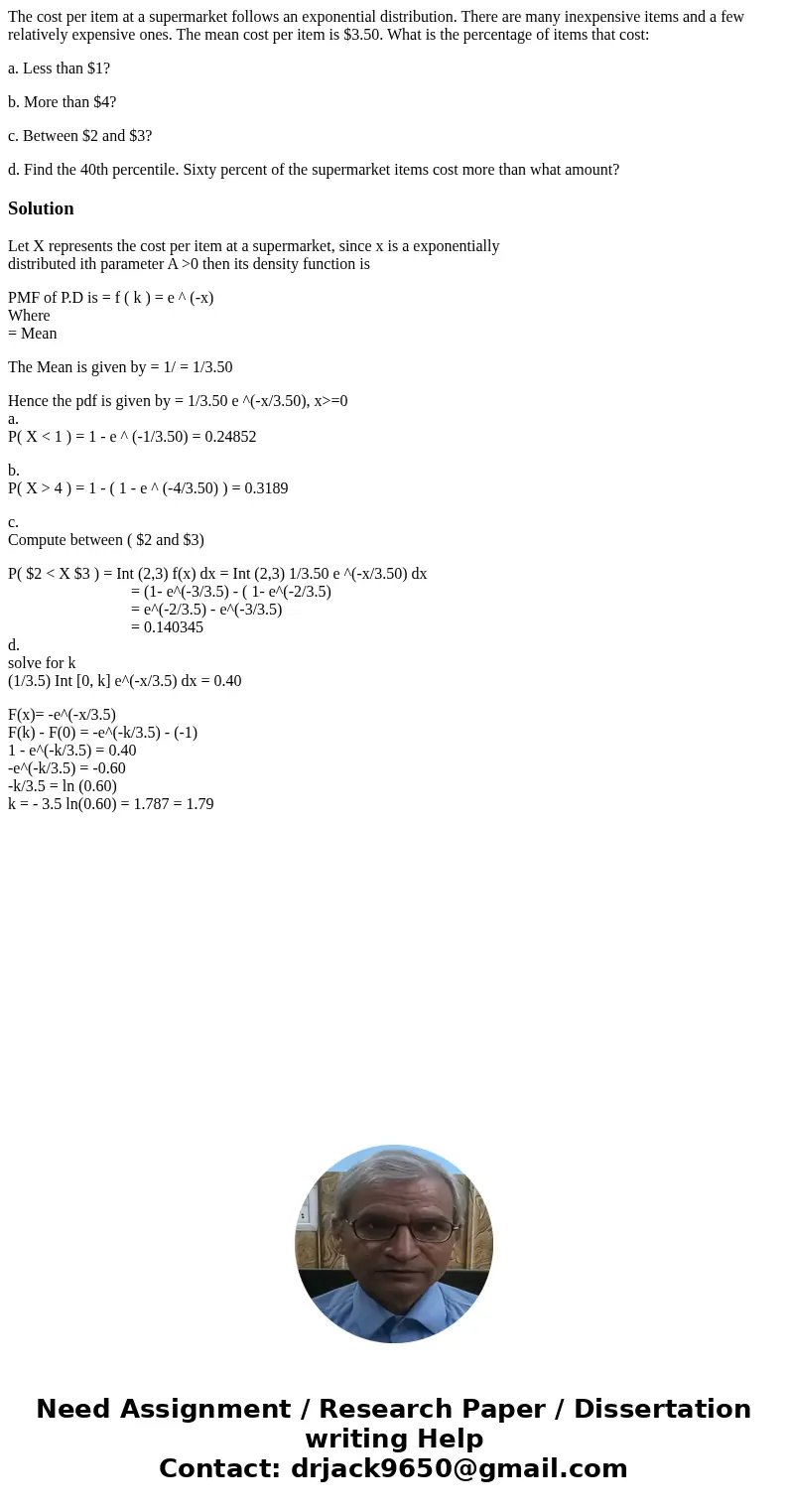The cost per item at a supermarket follows an exponential di
The cost per item at a supermarket follows an exponential distribution. There are many inexpensive items and a few relatively expensive ones. The mean cost per item is $3.50. What is the percentage of items that cost:
a. Less than $1?
b. More than $4?
c. Between $2 and $3?
d. Find the 40th percentile. Sixty percent of the supermarket items cost more than what amount?
Solution
Let X represents the cost per item at a supermarket, since x is a exponentially
distributed ith parameter A >0 then its density function is
PMF of P.D is = f ( k ) = e ^ (-x)
Where
= Mean
The Mean is given by = 1/ = 1/3.50
Hence the pdf is given by = 1/3.50 e ^(-x/3.50), x>=0
a.
P( X < 1 ) = 1 - e ^ (-1/3.50) = 0.24852
b.
P( X > 4 ) = 1 - ( 1 - e ^ (-4/3.50) ) = 0.3189
c.
Compute between ( $2 and $3)
P( $2 < X $3 ) = Int (2,3) f(x) dx = Int (2,3) 1/3.50 e ^(-x/3.50) dx
= (1- e^(-3/3.5) - ( 1- e^(-2/3.5)
= e^(-2/3.5) - e^(-3/3.5)
= 0.140345
d.
solve for k
(1/3.5) Int [0, k] e^(-x/3.5) dx = 0.40
F(x)= -e^(-x/3.5)
F(k) - F(0) = -e^(-k/3.5) - (-1)
1 - e^(-k/3.5) = 0.40
-e^(-k/3.5) = -0.60
-k/3.5 = ln (0.60)
k = - 3.5 ln(0.60) = 1.787 = 1.79

 Homework Sourse
Homework Sourse